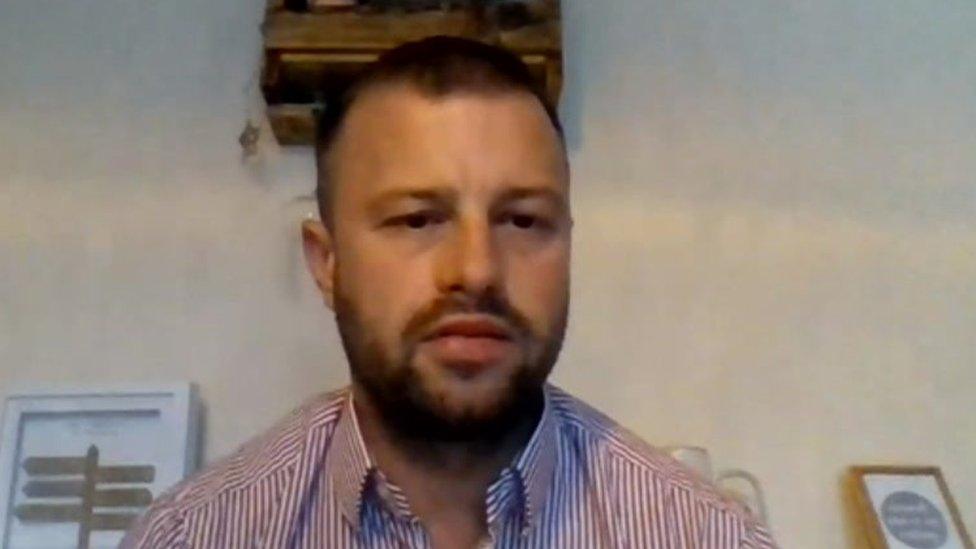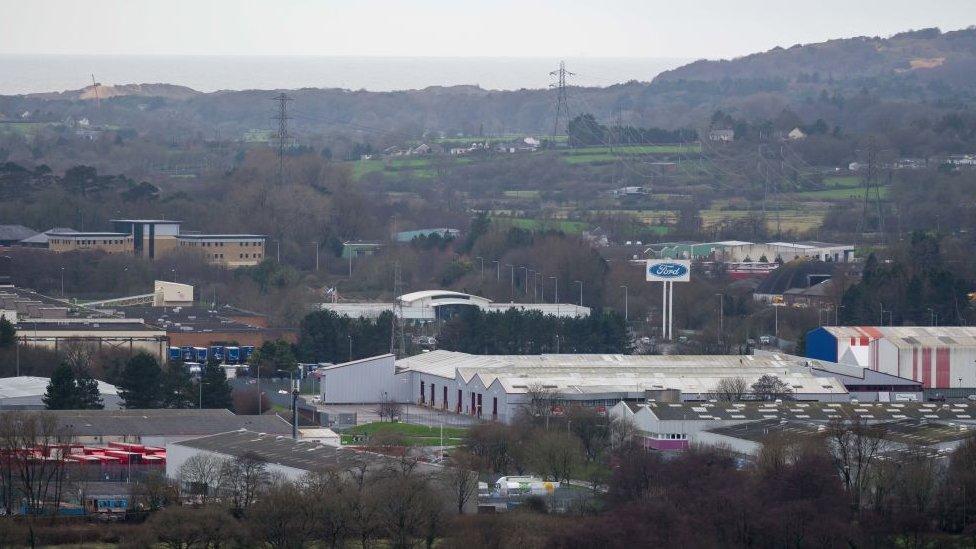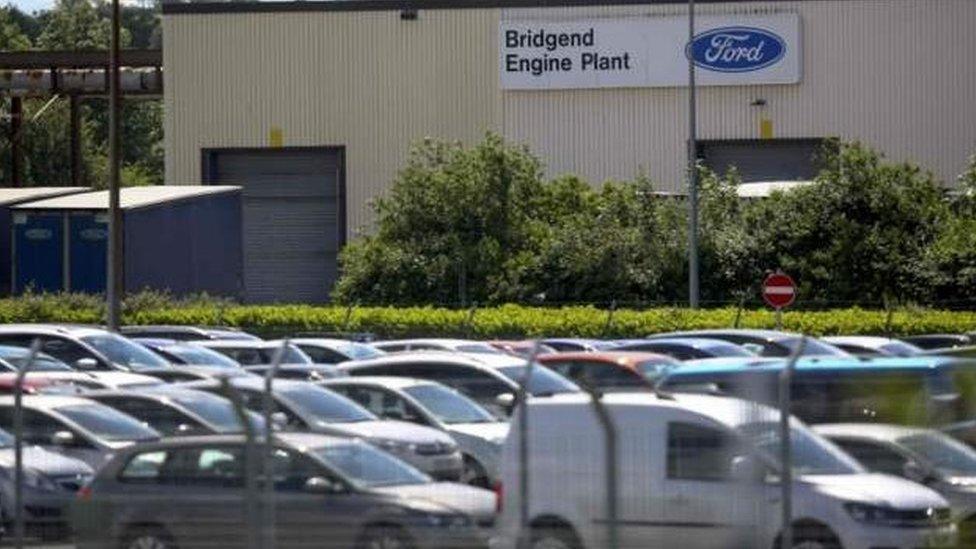Ford Bridgend closure 'grieving process' for workforce
- Published
Four decades of manufacturing axed
The closure of the Ford engine plant in Bridgend has been a "grieving process" for the workforce and is "devastating for the local community", says a worker and union official.
The 1,700 highly-skilled, well-paid jobs "can't be replaced", said Andrew Pearson, Unite convener at the site.
Ford in Bridgend had been a driving force in the Welsh automotive industry since it began operating 40 years ago.
The closure decision in 2019 was blamed on "changing customer demand and cost".

Workers leaving the plant when the closure was announced in June 2019
The Welsh Government said at the time it was "absolutely livid" at Ford's decision and that it "expected more" from the car giant.
Currently, 999 staff are still working at the plant and BBC Wales believes a large number are expected to finish on Thursday with the others following on Friday with the final closure of the plant.

Andrew Pearson said there were workers from 23 different Senedd constituencies
Mr Pearson, who has worked at the factory for 14 years, said: "It was seen as a job for life and it was certainly life changing.
"I wanted to work for them for another 20 years and that's been taken away from me. So it's really tough for me personally and is tough for my family."
He added that Friday would be "very, very emotional and upsetting" for everyone at the plant and the local community.
But the Unite representative said workers at Ford lived in 23 constituencies across Wales so the impact would be felt well beyond Bridgend too.
While Mr Pearson remains critical of Ford's decision to close the plant in the first place, he argued the company had done a lot to support workers over the past 15 months.
That included funding for retraining, skills development and community projects.
A task force was set up to try to help bring new jobs and new companies to the area as well as support workers and the local community.
"We can't replace the high-value jobs," Mr Pearson argued. "They're very well paid jobs, we're not going to be able to replace them. These jobs don't come about too often."
The story behind how the Ford engine plant in Bridgend was built between 1977 and 1980.
A short history of Ford in Bridgend
The plant opened in May 1980 after Bridgend beat competition from Ireland for the £180m investment
The engine was built for the launch of the new Ford Escort, which became one of the most popular cars
Originally there were hopes for 2,500 workers, but new production techniques meant only 1,400 were taken on
The number of automotive firms grew - there are more than 70 components suppliers along the M4 corridor and valleys alone
During the 40 years, the plant has produced more than 22 million engines
In 2008, Ford took a more global outlook on its operations - and made its last vehicle in the UK in 2013
Bridgend also made engines for Jaguar but its demise was sealed by the scaling back of plans for a new Dragon engine. Closure was announced in June 2019.
Manufacturing important for Bridgend

Bridgend, on the M4 corridor, has above average numbers working in manufacturing
At 76%, the employment rate in Bridgend is close to the average for Great Britain and a little higher than Wales as a whole (74%).
But it is heavily dependent on manufacturing, a sector that faces a great deal of uncertainty due to Covid-19 and Brexit.
The latest figures show 15.5% of employees work in the sector in Bridgend compared with 11.4% for Wales and 8.1% for Great Britain.
Aston Martin has employed hundreds of workers in the Vale of Glamorgan but there was disappointment in July when Ineos announced it was suspending plans to build its new 4x4 in Bridgend.
Training opportunities have also been limited due to the pandemic, according to Unite.
The trade union said nobody could blame the workforce for the end of production at Ford Bridgend.
"I want to make sure that we left with our heads held high," concluded Mr Pearson.
"This is about a global decision made by Ford Motor Company and it's certainly nothing to do with the performance or the commitment from our members in the plant over the last few years."
Tim Williams, chief executive of the Welsh Automotive Forum, said there was hope from the news that electric car battery firm Britishvolt was bringing hundreds of jobs to the Vale of Glamorgan.
"We have to make sure companies are anchored here in Wales and stay in Wales," said Mr Williams.
"The industry has a future of course but it's going to be down over the next couple of years."
- Published6 June 2019

- Published1 March 2017
